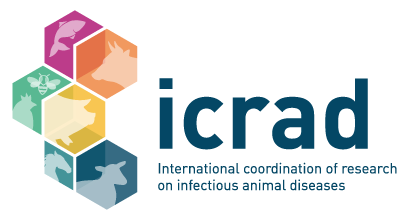Project details
Acronym: QNetAssess
Researcher: Dr. Tom McNeilly
Countries: United Kingdom, Germany, Belgium, Netherlands, Spain, France
Project Summary
Q fever is an important zoonotic pathogen caused by the bacterium Coxiella burnetii. Clinical signs in humans range from more common flulike symptoms to persistent and potentially fatal infections. Ruminant livestock, and sheep and goats in particular, are the primary source of human infections, although C. burnetii can infect a wide range of other animals including wildlife and ticks. In ruminants, C. burnetii can cause abortion, stillbirth and weak offspring, particularly in sheep and goats, although most infections are asymptomatic. Thus, host range and outcome of infection is highly variable. However, our understanding of how C. burnetii genotype contributes to this variation is limited.
The main genotyping methods currently used for C. burnetii generate only limited genomic information and are difficult to standardise between laboratories. Whole genome sequencing (WGS) has revolutionised molecular epidemiology and surveillance of many zoonotic pathogens as it provides comprehensive genetic information and is easily standardised. However, few C. burnetii strains are currently available for WGS, largely due to difficulties in isolating the bacteria from field samples.
We have assembled a consortium with unique expertise in C. burnetii surveillance and genomics to allow collation of C. burnetii positive samples from a wide range of hosts (livestock, wildlife and humans) with accurate clinical data. C. burnetii will be isolated from these samples using optimised isolation methods. Isolated strains, plus available archived strains, will be submitted for WGS to generate a comprehensive database of annotated C. burnetii genomes, which will include phenotypic data from the field and in-vitro cellular assays.
WGS data will be analysed using novel bioinformatics approaches to identify molecular determinants of C. burnetii host range and virulence. Finally, project outputs will be synthesised into a recommended framework for future molecular surveillance of C. burnetii.
